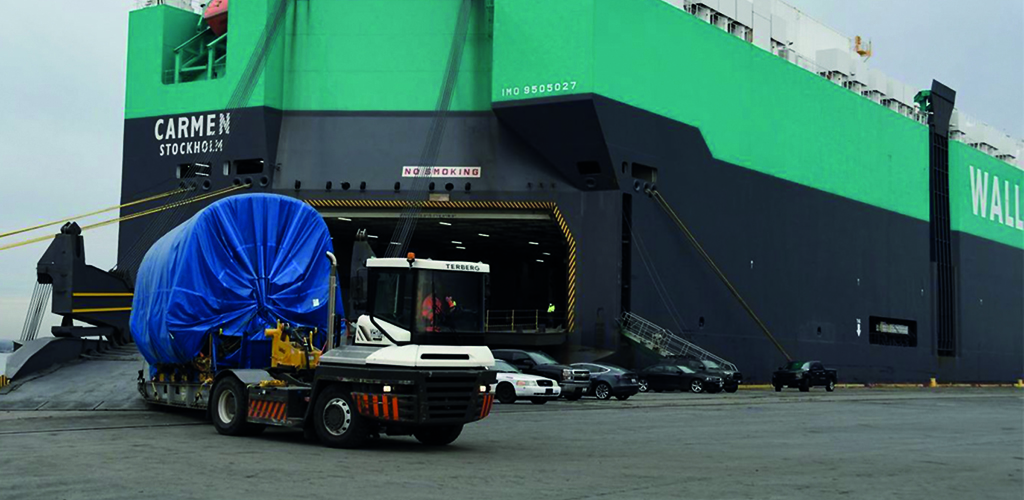Carsten Wendt: Project Cost Exposure A Real Concern

By Simon West
 Among the many hot topics covered at Breakbulk Middle East 2022 in Dubai, none perhaps generated quite so much debate as freight rates and capacities. As we gear up for Breakbulk Europe, May 17-19 at the Rotterdam Ahoy, the industry is itching to know if the market this year will find some semblance of stability.
Among the many hot topics covered at Breakbulk Middle East 2022 in Dubai, none perhaps generated quite so much debate as freight rates and capacities. As we gear up for Breakbulk Europe, May 17-19 at the Rotterdam Ahoy, the industry is itching to know if the market this year will find some semblance of stability.
 Carsten Wendt, head of sales, high and heavy and breakbulk at Norway-based shipping company Wallenius Wilhelmsen, said rising rates and tight capacities are one of the biggest challenges facing the industry today.
Carsten Wendt, head of sales, high and heavy and breakbulk at Norway-based shipping company Wallenius Wilhelmsen, said rising rates and tight capacities are one of the biggest challenges facing the industry today.
“Everyone is concerned about the projects that have been sold already, or the projects that need to move. They are worried that the rate they have budgeted for might not be valid anymore. It is really about limiting your cost exposure,” Wendt said in an interview with Breakbulk.
“Looking to the future, transport costs could really make a decision if a project will run or not run. So, it is certainly of big interest for our industry – how this will develop, and how reliable it is. Not only to have the capacity but also to know your cost framework.”
Wendt, who joined Wallenius Wilhelmsen in September 2014 after a seven-year stint at Hamburg-based project cargo carrier Rickmers-Linie, recently became a member of the Breakbulk Europe Advisory Board, a team of industry experts who have been instrumental in shaping the program for this year’s conference in Rotterdam.
Drawing on their decades of experience as project cargo owners, forwarders, carriers and heavy-lift professionals, board members have identified and explored the issues that matter most to breakbulk and project cargo.
For Wendt, another big challenge for the industry will be adapting to climate change.
“The shipping industry has a lot of work still ahead, and it cannot only be done by the carriers alone. This needs to be a joint effort,” he said. “This will be a huge challenge. How do we go into that next stage of zero emissions? How do we transport goods in a CO2 friendly environment?”
Sustainability is one issue that is changing how companies operate; the other, he said, has been Covid-19.
Although too early to understand its long-term impact, the upheaval over the last two years is forcing companies to rethink how they source their products.
“A lot of people realize that if you depend too much on suppliers overseas and you have disruptions, maybe a blockage of the Suez Canal, or you have issues with Long Beach vessels unable to call, or ports being closed in China, then this could disrupt production lines or construction sites and I think you will see a change here.
“I think customers will try to put this on more shoulders and really spread the risk, and so cargo volumes will shift maybe then to more local production. You will also probably see an increase in storage facilities, just to have a little bit more room to breathe.”
Despite these major challenges, Wendt remains passionate about his industry. Among the dozens of world-scale projects he has worked on during his 15-year career, the executive said it was “really difficult” to pinpoint a favorite.
“I cannot really come up with a single project where I said, OK, this is the one which was life-changing, but I guess as a general note any project which pushed us as a company or my colleagues or myself to the limits – those are usually the exciting ones.”
Colombia-based Simon West is senior reporter for Breakbulk.
